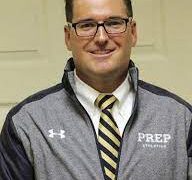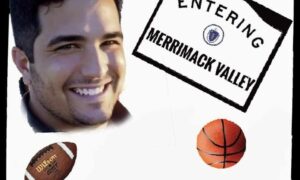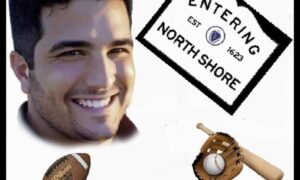SALEM (Podcast) Lauren DiCredico is an adjunct professor in sports psychology at Salem State University and a sports psychology consultant. In this podcast, the former Salem State field hockey and softball player, discusses both of her professional roles and sheds light on the role of sports psychology as it relates to peak performance. In the podcast DiCredico discusses the increasing role that sports psychology plays in enhancing individual performance and how it can improve team outcomes. Below there is a listing of topics she addresses for our listeners. For additional information there are links below the podcast and a link below the question and answers on the topics covered in the podcast.
Lauren DiCredico – Adjunct Professor Salem State – Sports Psychology – with Bill Newell
Links – Salem State Notes Instagram Website

Meet Lauren DiCredico – SSU Adjunct Professor & Sports Psychology Consultant
Topics Discussed in the Podcast
In partnership with Division III Week, which is a positive opportunity for all individuals associated with Division III to observe and celebrate the impact of athletics and of student-athletes on the campus and surrounding community, Salem State is proud to highlight adjunct faculty & sport psychology consultant Lauren DiCredico ’14, who has returned to campus as a visiting lecturer and consultant to the athletics department.
DiCredico a former two-sport athlete and John D. Galaris Scholar-Athlete award winner at Salem State, specializes in organizational psychology & sport psychology and works with athletes and teams to enhance their performance and well-being. DiCredico earned a bachelor of science in Psychology from Salem State before earning a masters in Sport and Performance Psychology from the University of Denver in 2016.
1. What is sport psychology and how did you know this was the right path for you?
Sport psychology is a specialized field that intersects psychology and sports. It centers around the psychological factors that influence an elite performer’s mind and how to overcome common internal battles they face.
2. What is the process of working with a sport psychologist?
It depends on a lot of factors, so I will talk about how it works here at Salem State with me. It’s really simple, you book a session with me as a student-athlete for a 1:1 session, or someone books a team session. I assess the intake form and decide if we should have a session or it seems too clinical and you should be referred to a clinical psychology expert.
3. What do you find is a common mental health problem specifically for athletes?
The most common challenge I see for athletes is perfectionism inhibiting their performance & mindset. The pressure they’ve put on themselves to continually perform at a high level can lead to excessive worry, fear of failure, and self-doubt, which can severely impact an athlete’s performance and overall mental well-being.
4. As a former athlete at Salem State, can you talk about your experiences as a student-athlete and what led you to coming back to the university as an adjunct professor and consultant for the athletics department?
My time as a student-athlete at Salem State offered a mix of incredibly rewarding experiences and an emotional roller coaster of personal ups and downs. Through it all, I felt completely supported and connected to the faculty & staff providing me guidance and mentorship throughout my journey.
5. Can you tell us about your work in clinical and sports psychology?
My work in counseling & sport psychology is incredibly varied & rewarding. I help athletes enhance their performance & emotional well-being through one on one sessions or group workshops.
6. Is there a specific person or event that influenced you to work in this field and how does your role benefit current athletes?
I don’t have one single moment, more like a collection of memorable moments that all led me to want to work in this field. The event that solidified it for me was being diagnosed with a heart condition my junior year at Salem State. It was an experience that challenged me in many ways and forced me to reassess my mental health. It also compelled me to go all in on the world of sport psychology so I could help others dealing with similar experiences, guiding them through struggles with identity when their sports career comes to an end, whether traditionally through graduating, or career ending injuries.
7. Do you have any advice for athletes looking to improve their mental health in the future?
Of course, my first piece of advice is to lean on your resources for support. But as for overall advice, pick one small thing to work on and do one small thing every day to improve that. Once that becomes a habit, pick the next best thing.
8. What type of career-opportunities exist in sports psychology?
The short answer is that there really aren’t many. It’s a growing field where you have to pave your own way sometimes.
9. For anyone who is interested in a career in sports psychology, do you have any recommendations or career advice?
Be prepared to do a lot of work for free when you’re starting out. Do research on the programs & approaches to the field so you can choose based on your own belief system, and talk to a lot of people to make your decision. It’s a super rewarding career, and it’s very competitive, so be sure to apply the things you learn on yourself as you muddle through the sticky waters.






